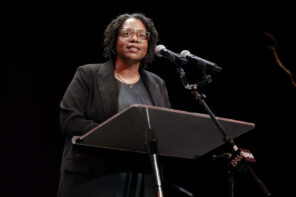With any new season comes new rules changes that will differentiate itself from the previous campaign.
The W’s Board of Governors approved a pair of rules changes for next season. One pertains to what is a clear path foul and the other expands the definition of what is considered a hostile act.
Simplification of the Clear Path Foul Rule
The changes to the clear path foul rule establish ‘bright line’ standards based on the position of players at the time of the foul while also narrowing required referee judgment and reducing the number of variables impacting the rule’s application.
A clear path foul is now defined as a personal foul against any offensive player during her team’s transition scoring opportunity in the following circumstances – the ball is ahead of the tip of the circle in the backcourt; no defender is ahead of the offensive player with the transition scoring opportunity; the player with the transition scoring opportunity is in control of the ball (or a pass has been thrown to her); and the foul deprives her team of a transition scoring opportunity.
Under the simplified rule, a clear path foul cannot occur if the fouled player is in the act of shooting or if the foul is caused by the defender’s attempt to intercept or deflect a pass intended for the player attempting to score in transition.
If a clear path foul is committed, the offended team will continue to be awarded two free throws and possession of the ball of the sideline nearest the spot where the foul occurred.
Expanded Definition of Hostile Act for Replay Purposes
For purposes of triggering instant replay review, the definition of a ‘hostile act’ has been broadened to enable referees to determine the appropriate penalty for players or coaches if they are involved in hostile encounters with each other, referees, or fans. (Under the old rule, the definition of a hostile act only included a player’s physical encounter with another player.)
The WNBA’s Competition Committee had a meeting on Oct. 29 and recommended both modifications.




